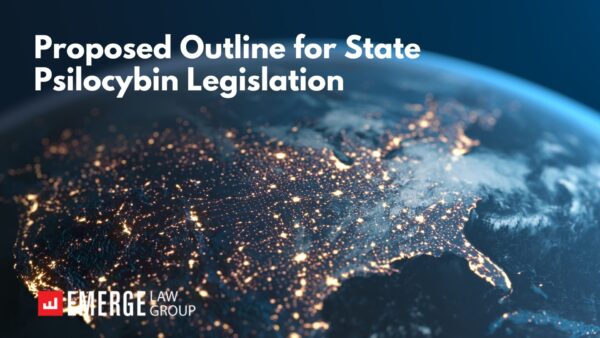First of its Kind Advocacy Effort to Open Access to Psilocybin for Terminally Ill Patients
Emerge Law Group is representing its client, the Advanced Integrative Medical Science Institute (AIMS), a leading oncology clinic in Seattle, and its co-director Sunil K. Aggarwal, MD, PhD, a noted palliative care specialist, in AIMS’ novel effort to seek permission from state and federal controlled substance regulatory agencies to manufacture psilocybin by growing psilocybe mushrooms for the purpose of treating terminally ill patients suffering with anxiety and/or depression. We believe that state and federal Right to Try (RTT) laws protect this conduct. RTT laws allow access to investigational drugs, recognizing that terminally ill patients do not have the luxury of time to await the slow process of new drug approval. Psilocybin is produced in the psilocybe mushroom; AIMS is seeking to manufacture the psilocybin from psilocybe mushrooms it will grow and is pursuing necessary registrations consistent with state and federal controlled substance laws.
Medical research demonstrates the powerful therapeutic uses of psilocybin. Multiple studies demonstrate that patients with advanced cancer suffering from treatment resistant anxiety and/or depression experience significant relief following a single treatment with psilocybin, with no safety concerns or adverse events.
The promise of therapeutic use of psilocybin is critically important for people with terminal diseases who experience emotional suffering to a greater extent than those in the general population. Dying patients frequently suffer depression and anxiety. For these patients, therapy facilitated with psilocybin may provide much needed relief.
All of the requirements of RTT are met with regard to psilocybin: (i) it has been granted investigational status as an “investigational new drug”(IND); (ii) Phase I clinical trials have been completed; and (iii) it remains under investigation but is otherwise not available. AIMS is taking the unusual step of seeking to produce its own supply of psilocybin because Usona Institute, an entity which holds a federal Investigational New Drug approval for psilocybin and supplies much of the psilocybin used in clinical trials, has declined to provide the medicine to AIMS despite requests that it do so. If the RTT effort is successful it could be a model for other clinics across the U.S.
In Washington, and in many other states, dying patients are able to access controlled substances to eradicate consciousness (through an intervention known as palliative sedation) and to advance the time of death (through aid in dying). Surely these patients ought to be able to access controlled substances to expand and elevate consciousness. As an advocate who has spent my career in advocacy to protect and expand the rights of the terminally ill, I believe so.
For more information contact Emerge Law Group Psychedelic Practice Group Co-Chairs, Kathryn Tucker or Dave Kopilak.




